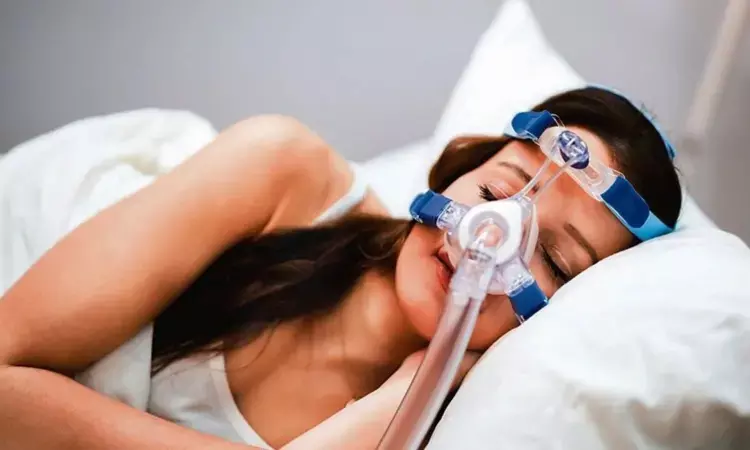- Home
- Medical news & Guidelines
- Anesthesiology
- Cardiology and CTVS
- Critical Care
- Dentistry
- Dermatology
- Diabetes and Endocrinology
- ENT
- Gastroenterology
- Medicine
- Nephrology
- Neurology
- Obstretics-Gynaecology
- Oncology
- Ophthalmology
- Orthopaedics
- Pediatrics-Neonatology
- Psychiatry
- Pulmonology
- Radiology
- Surgery
- Urology
- Laboratory Medicine
- Diet
- Nursing
- Paramedical
- Physiotherapy
- Health news
- Fact Check
- Bone Health Fact Check
- Brain Health Fact Check
- Cancer Related Fact Check
- Child Care Fact Check
- Dental and oral health fact check
- Diabetes and metabolic health fact check
- Diet and Nutrition Fact Check
- Eye and ENT Care Fact Check
- Fitness fact check
- Gut health fact check
- Heart health fact check
- Kidney health fact check
- Medical education fact check
- Men's health fact check
- Respiratory fact check
- Skin and hair care fact check
- Vaccine and Immunization fact check
- Women's health fact check
- AYUSH
- State News
- Andaman and Nicobar Islands
- Andhra Pradesh
- Arunachal Pradesh
- Assam
- Bihar
- Chandigarh
- Chattisgarh
- Dadra and Nagar Haveli
- Daman and Diu
- Delhi
- Goa
- Gujarat
- Haryana
- Himachal Pradesh
- Jammu & Kashmir
- Jharkhand
- Karnataka
- Kerala
- Ladakh
- Lakshadweep
- Madhya Pradesh
- Maharashtra
- Manipur
- Meghalaya
- Mizoram
- Nagaland
- Odisha
- Puducherry
- Punjab
- Rajasthan
- Sikkim
- Tamil Nadu
- Telangana
- Tripura
- Uttar Pradesh
- Uttrakhand
- West Bengal
- Medical Education
- Industry
Pitolisant effectively reduces daytime sleepiness among patients of sleep apnea

A recent study published in the CHEST Journal unveiled promising long-term effects of Pitolisant in curbing excessive daytime sleepiness. Even in patients adhering to the standard continuous positive airway pressure (CPAP) therapy, daytime drowsiness can persist, posing a significant challenge to effective obstructive sleep apnea (OSA) management.
Initial outcomes of two 12-week randomized controlled trials (HAROSA 1 and HAROSA 2) demonstrated the efficacy of Pitolisant in reducing daytime sleepiness, with one trial focusing on CPAP-compliant patients and the other on those resistant or intolerant to CPAP.
The subsequent open-label cohort study provided a resounding affirmative. Adults who participated in the initial trials underwent both Pitolisant and placebo arms and were offered Pitolisant for an additional 40 weeks (from week 13 onwards). The primary measure of success was the change in the Epworth Sleepiness Score (ESS) over the course of 52 weeks.
The results found the pooled mean difference in ESS from baseline to one year was -8.0 [-8.3, -7.5], indicating a significant reduction in daytime sleepiness. Importantly, this effect was consistent across patients using CPAP and those who were not.
In addition to its efficacy, the safety profile of Pitolisant over the year-long study was encouraging. The overall occurrence of treatment-emergent adverse events (TEAE) was 35.1%, with only 2.0% deemed serious. Special interest TEAE, including cardiovascular parameters, did not raise significant concerns.
This study suggests that Pitolisant not only tackles daytime sleepiness but does so sustainably over an extended period. Further exploration and validation are anticipated to solidify the role of Pitolisant in enhancing the quality of life for those navigating the challenges of OSA.
Source:
Pépin, J.-L., Attali, V., Caussé, C., Verbraecken, J., Hedner, J., Lecomte, I., Tamisier, R., Lévy, P., Lehert, P., & Dauvilliers, Y. (2023). Long-term efficacy and safety of pitolisant for residual sleepiness due to Obstructive Sleep Apnea. In CHEST. Elsevier BV. https://doi.org/10.1016/j.chest.2023.11.017
Neuroscience Masters graduate
Jacinthlyn Sylvia, a Neuroscience Master's graduate from Chennai has worked extensively in deciphering the neurobiology of cognition and motor control in aging. She also has spread-out exposure to Neurosurgery from her Bachelor’s. She is currently involved in active Neuro-Oncology research. She is an upcoming neuroscientist with a fiery passion for writing. Her news cover at Medical Dialogues feature recent discoveries and updates from the healthcare and biomedical research fields. She can be reached at editorial@medicaldialogues.in
Dr Kamal Kant Kohli-MBBS, DTCD- a chest specialist with more than 30 years of practice and a flair for writing clinical articles, Dr Kamal Kant Kohli joined Medical Dialogues as a Chief Editor of Medical News. Besides writing articles, as an editor, he proofreads and verifies all the medical content published on Medical Dialogues including those coming from journals, studies,medical conferences,guidelines etc. Email: drkohli@medicaldialogues.in. Contact no. 011-43720751


